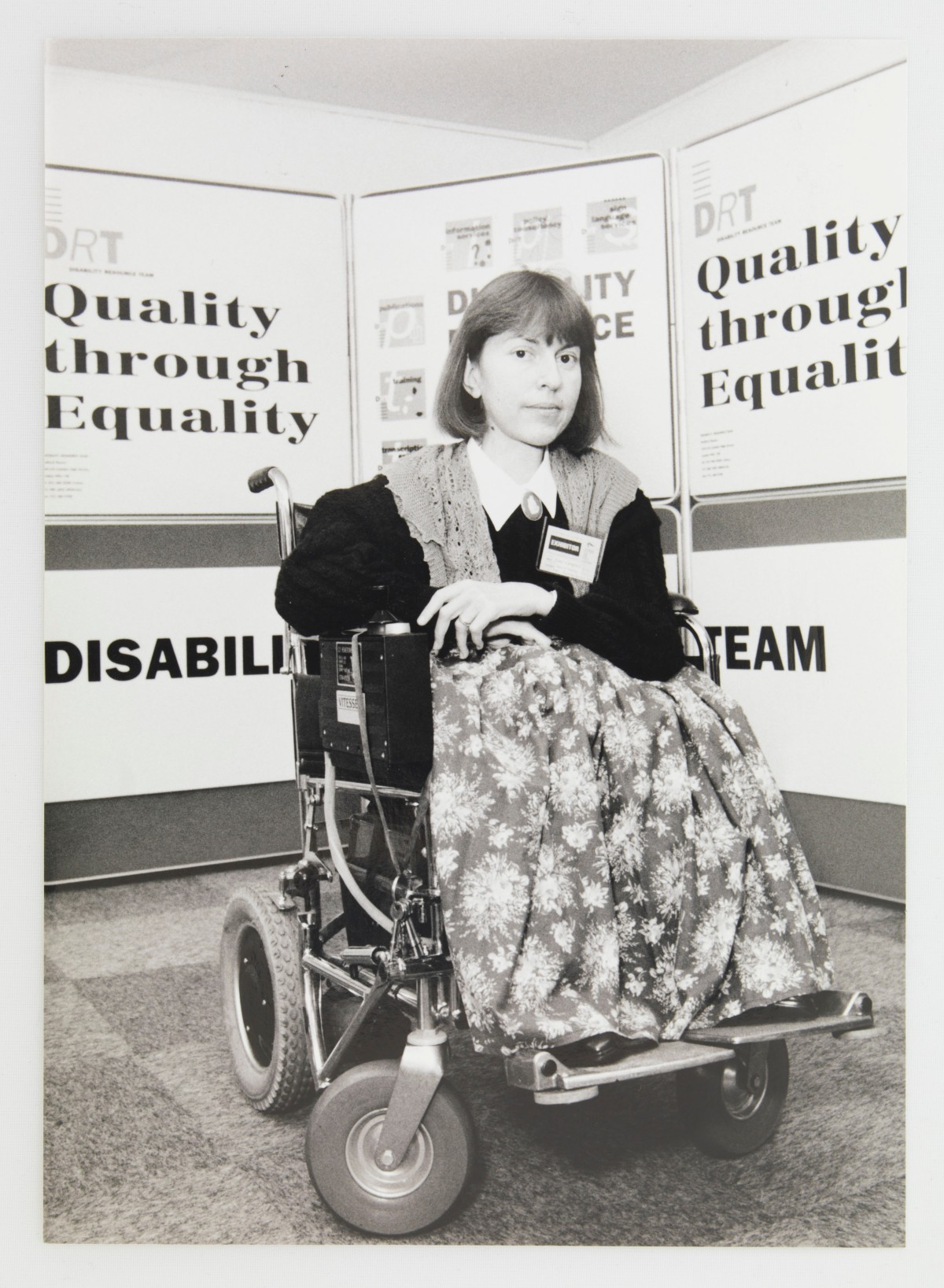On 24 March 2020, the Department for Work and Pensions published its latest figures on disability and employment, showing a disability employment rate gap, the percentage point difference between the proportion of disabled and non-disabled people in employment, of 28.1%. For comparison, the last published gender employment rate gap was 8.2%.
These figures accompany a growing realisation of the impact the COVID-19 pandemic could have on disabled people. The Women and Equalities Committee has already set up an inquiry on the unequal effects of the pandemic on those with protected characteristics. On 7 April 2020, an open letter calling for equal treatment was published, entitled COVID-19 and the rights of disabled people. The letter now has over 1800 disability groups, disabled individuals and allies as signatories. Top of the list of those signatories is Baroness Jane Susan Campbell of Surbiton, DBE.
I LOVE IDEAS
Jane was born on 19 April 1959. She was initially, as with most disabled children in England at the time, sent to a segregated school, where academics were not prioritised. At 16, and with no qualifications, she joined Hereward College. In just three years there, Jane had caught up and gained sufficient O- and A-levels to secure a place at Hatfield Polytechnic where she went on to secure a BA in political sciences. She then went on to achieve a Master’s from the University of Sussex, writing her dissertation on Sylvia Pankhurst.
I’M AMBITIOUS
Jane’s activism was initially inspired at a disability rights conference, at which she listened to a speech by Vic Finkelstein, the South African political activist and campaigner. He encouraged disabled people to rise up and demand the human right to be a part of society. From that day on, Jane became a radical disability activist, fighting for equality of access and equality of treatment.
This activism saw Jane, along with other activists, blocking Westminster Bridge Road with her wheelchair, and helped to bring about the ground breaking Disability Discrimination Act 1995 and the Community Care (Direct Payments) Act 1996, which gave people more control and choice over their support. In 1996 she co-authored Disability Politics: Understanding our Past, Changing our Future.
Jane has held numerous positions fighting for rights equality. To list a few of the entries on her impressive CV: between 1991 and 1995, she was co-chair of the British Council of Disabled People; from 1996 to 2012, she was a co-director and then trustee of the National Centre for Independent Living, which she co-founded; between 2000 and 2007, she was commissioner of the Disability Rights Commission; and, from 2001 to 2005, she served as executive chair of the Social Care Institute for Excellence, an appointment by the Minister for Social Care.
In her position as a crossbench peer in the House of Lords, Jane has been vocal about the effects of austerity on disabled people, and is credited with quashing an amendment to the then Coroners and Justice Bill which would have granted those accompanying people going abroad for assisted suicide immunity from prosecution.
I LOVE LIFE
Jane continues to liaise with all those legislating on rights for equality, making sure marginalised voices are heard.
If you’d like to sign the open letter COVID-19 and the rights of disabled people, you can do so here.
If you’d like to learn more about the disability rights movement further afield, I can highly recommend the Netflix documentary Crip Camp, which documents a group of disability rights activists in the US.
